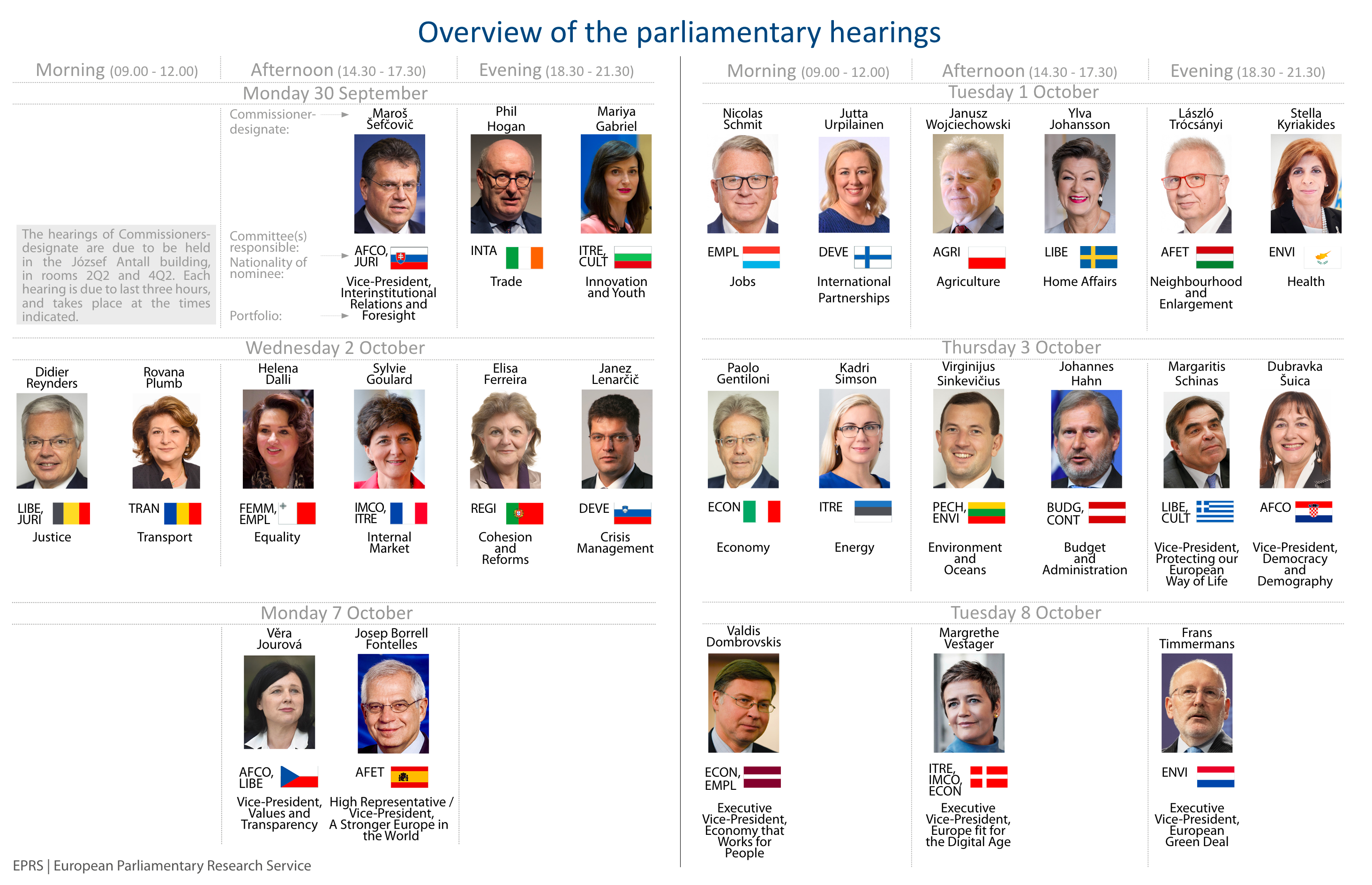Over the next two weeks, the candidates for posts as European Commissioners, at the top of the European Union’s executive will face three-hour public hearings in the European Parliament. Each of the nominees, put forward by their national governments, but seeking to take up a portfolio crafted by President-elect, Ursula von der Leyen, will face questions on their suitability for a post in the Commission in general, as well as on their specific competence for the portfolio allocated to them. Prior to their hearing, each candidate has to provide a declaration of financial interests and satisfy the Legal Affairs Committee (JURI) that their financial affairs present no conflict of interest.
From the very beginnings of the European Union, the Parliament has had the power to dismiss the European Commission as a bloc, by means of a motion of censure. However, in 1992, Parliament also gained a role in the appointment of a new College of Commissioners every five years. Under the Maastricht Treaty, Members of the European Parliament vote first on the candidate for Commission President, and subsequently to confirm the appointment of the Commission as a body.
The hearings are due to take place from 30 September to 8 October 2019, at the European Parliament in Brussels. Prior to the public hearings, each candidate is invited to respond to written questionnaires from the committee(s) that are to conduct the hearings.
Under the Treaties, Parliament may reject the nomination of the new College as a body, but cannot reject individual Commissioners-designate. However, based on their performance in the hearings, Parliament may exercise its influence on the selection of individual candidates or the allocation of portfolios, as it has done in the past.
Each briefing in this set provides an overview of one of the candidates whose hearings are expected to take place as scheduled, and of the key issues and recent developments in the portfolios of the nominated Commission.
Vice-Presidents
Frans Timmermans – European Green Deal
Margrethe Vestager – A Europe fit for the Digital Age
Valdis Dombrovskis – An Economy that Works for People
Josep Borrell Fontelles – A Stronger Europe in the World (High Representative of the Union for Foreign Affairs and Security Policy)
Maroš Šefčovič – Interinstitutional Relations and Foresight
Věra Jourová – Values and Transparency
Dubravka Šuica – Democracy and Demography
Margaritis Schinas – Protecting our European Way of Life
Commissioners
Johannes Hahn – Budget and Administration
Phil Hogan – Trade
Mariya Gabriel – Innovation and Youth
Nicolas Schmit – Jobs
Paolo Gentiloni – Economy
Janusz Wojciechowski – Agriculture
Thierry Breton – Internal Market
Elisa Ferreira – Cohesion and Reforms
Stella Kyriakides – Health
Didier Reynders – Justice
Helena Dalli – Equality
Ylva Johansson – Home Affairs
Janez Lenarčič – Crisis Management
Adina Vălean – Transport
Olivér Várhelyi – Neighbourhood and Enlargement
Jutta Urpilainen – International Partnerships
Kadri Simson – Energy
Virginijus Sinkevičius – Environment and Oceans

Read also
Overview of the parliamentary hearings, EPRS Infographic, September 2019
Parliamentary hearings of the Commissioners-designate: A decisive step in the investiture process [Policy podcast], EPRS Briefing, September 2019
Candidates for the new European Commission, European Parliament website, September 2019








Dear Colleagues,
Are missing Plumb’s and Trócsányi’s briefings.
Best regards,
Virginie André
on 27/09/2019 at 13h39
[…] to the first plenary session of the new term to be held in Brussels. The focus will still be on the hearings process, however, with decisions to be taken by the political group leaders on possible additional hearings […]